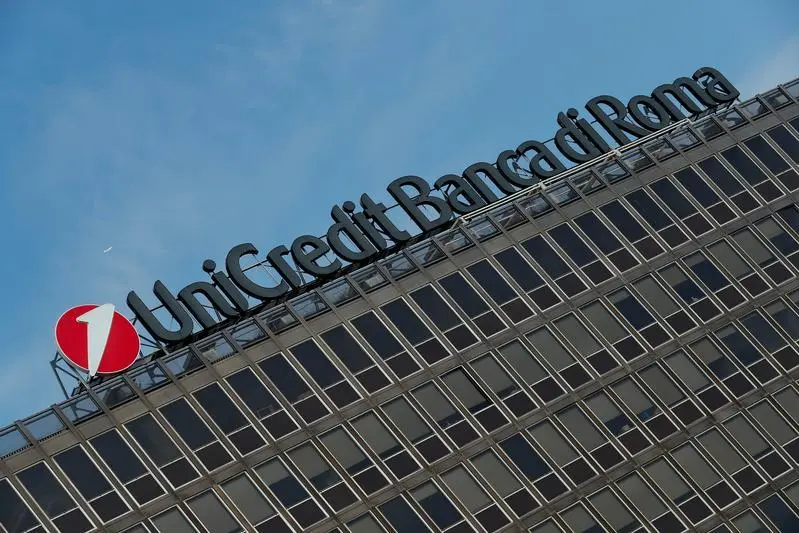PHOTO
LONDON - Italian bank UniCredit has got through the first stage of a tricky Turkish escape. The Italian bank trimmed its holding in Istanbul-based Yapi Kredi Bank, paving the way for a proper exit from a country plagued by years of economic mismanagement. Yet Chief Executive Jean Pierre Mustier can’t celebrate just yet.
Saturday’s deal came at a price – for the seller. UniCredit and local partner Koc Group have unwound the venture through which they controlled 82% of Yapi Kredi. The Italian lender also ceded a chunk of its shares in the $3.5 billion bank to Koc, leaving it with just a 32% stake. As well as selling at a chunky 12% discount to the previous closing price, UniCredit will pay 260 million euros in break fees and local taxes, resulting in a 400 million euro loss. Koc, meanwhile, sees its stake rise to nearly 50%, and gains control without having to pay a premium.
Yet the transaction still makes sense for Mustier. Cutting the stake will allow him to offload 5 billion euros in risk-weighted assets, boosting UniCredit’s common equity Tier 1 capital ratio by around 5 basis points, even after the loss is factored in. The new ownership structure also frees his hand to sell down the rest. The hope is that investors will reward UniCredit with a richer valuation now that it is less exposed to the risky Turkish economy.
Mustier also needs regulators’ help. The European Central Bank might allow him to use a different accounting treatment for Yapi Kredi now that it is no longer controlled by a joint venture, and treat the stake as an equity investment, rather than consolidating a share of its assets. Credit Suisse analysts reckon that would crank up UniCredit’s CET1 ratio by 65 basis points from its current 12.6%.
And, if the long-term plan is to leave Turkey completely, Mustier needs markets to play along. Under the terms of the deal with Koc, he is limited to just one public sale over the next two years. Turkish bank stocks have risen recently as the central bank, pressed by President Tayyip Erdogan, has slashed rates to stimulate the economy. Yet the recovery is fragile, and the sale limits could leave UniCredit exposed to a downturn, or another of Turkey’s periodic currency crises. Mustier’s Turxit could still prove perilous.
On Twitter https://twitter.com/dasha_reuters
CONTEXT NEWS
- UniCredit agreed to restructure its stake in Turkish lender Yapi Kredi Bank and cut it below 32% as part of moves to simplify its shareholdings and bolster capital, the Italian lender said on Nov. 30.
- Turkey’s Koc Group will buy UniCredit’s 50% stake in Koc Financial Services (KFS), the joint venture which controls Yapi Kredi, to become the venture’s sole owner. Meanwhile KFS will sell 31.93% of Yapi Kredi to UniCredit and 9.02% to Koc Group.
- UniCredit will record a 1 billion euro loss on the transaction, which values Yapi Kredi at 2.122 lira per share (0.34 euros), a discount of 11.6% to the Nov. 29 closing price.
- The 28 billion euro bank said it expected its group common equity Tier 1 capital ratio - an indicator of financial health - to be lifted by around 5 basis points at closing.
(Editing by Neil Unmack and Karen Kwok) ((dasha.afanasieva@thomsonreuters.com; Reuters Messaging: dasha.afanasieva.thomsonreuters.com@reuters.net))





















